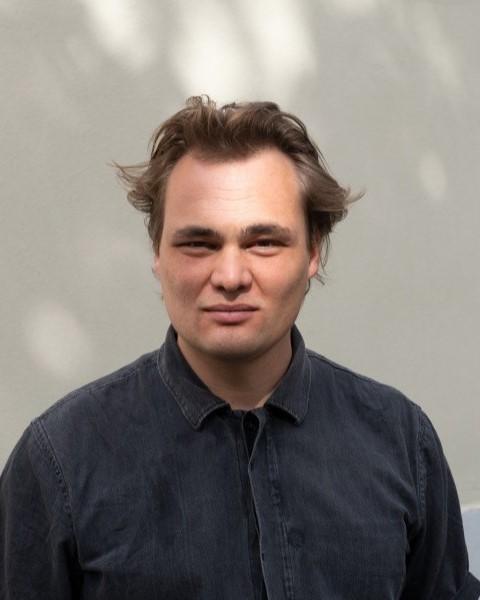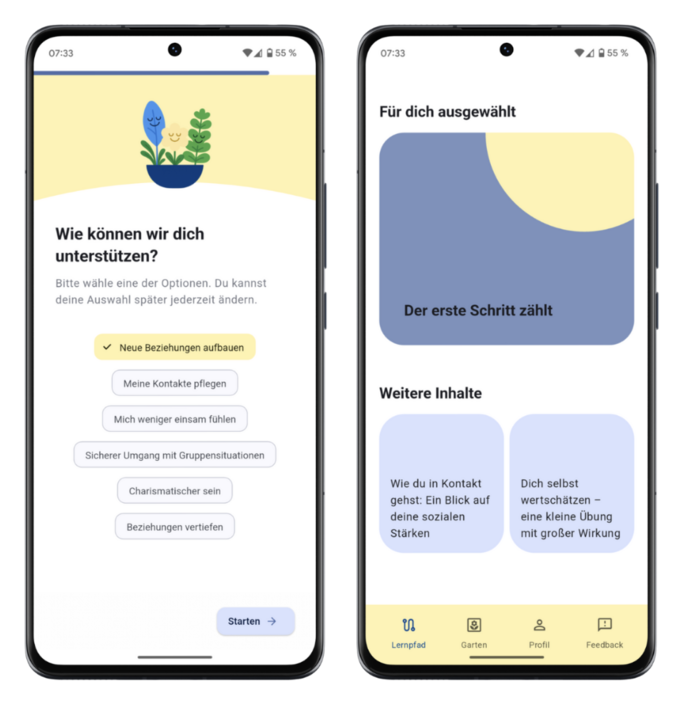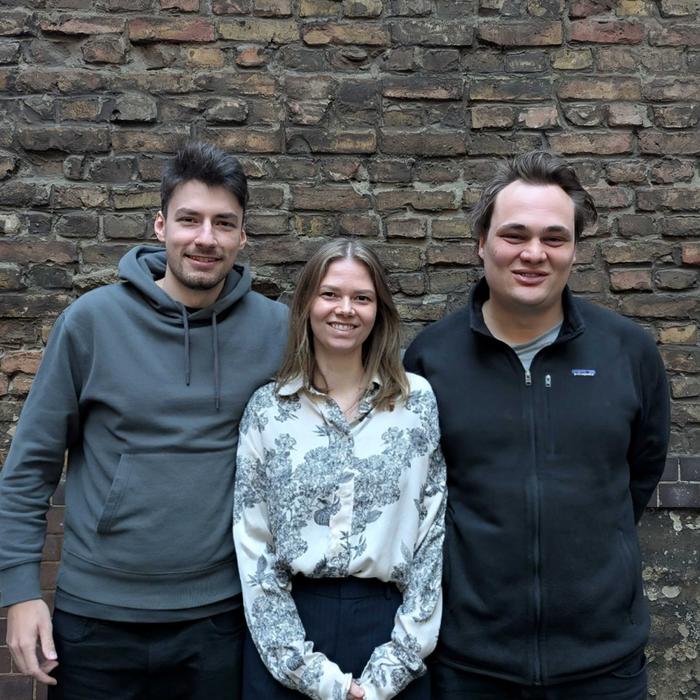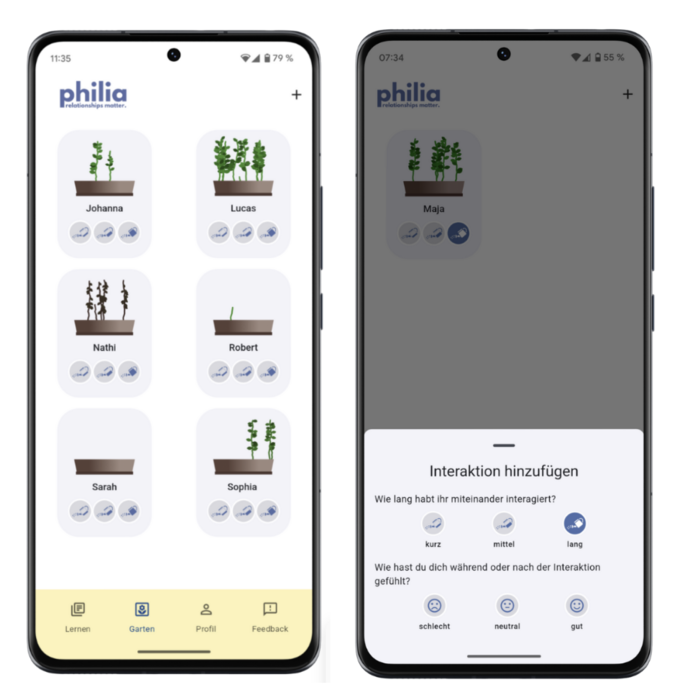People everywhere, life everywhere—and yet lonely in the midst of it all.
Silvan Hornstein is one of the five winners of our “Art Meets Science” ideas competition. He won in the category of social cohesion—one of the great challenges of our time.
Silvan Hornstein is developing a digital application at Humboldt-Universit zu Berlin to combat loneliness among young people.
Loneliness is considered a growing social problem that has a profound impact on mental and physical health. Studies show that people who feel lonely on a long-term basis have an increased risk of depression, anxiety disorders, and cardiovascular disease—and a shorter life expectancy. Young people today also feel lonely more often—despite crowded lecture halls, shared kitchens, and the hustle and bustle of big cities. In Berlin, where individuality is celebrated and social closeness is often fleeting, this form of loneliness affects many people. Nevertheless, loneliness is often misunderstood or downplayed, especially when it comes to younger people.
Silvan Hornstein, psychologist and doctoral candidate at Humboldt Universitn Berlin, wants to change that. Together with his team, he is developing platoniq.health, an app that not only connects people, but also specifically strengthens social skills and changes obstructive thought patterns. It is based on findings from psychological research: interventions that focus on the how of relationships—not just the whether—are particularly effective against loneliness.
Silvan won an award in the “Social Cohesion” category of our ideas competition for his research project. In this interview, he explains why Berlin is considered the loneliness capital, what role digital tools can play in healthcare, and what inspired him to undertake his project.
Silvan's goal: to destigmatize loneliness, create preventive services, and strengthen social cohesion where it is urgently needed.
Learning relationships – a visual interpretation of Silvan Hornstein's research. The motif will be displayed on posters throughout Berlin as part of the BUA OPEN LAB campaign. | Artist: Robin Lochmann
Dear Silvan, congratulations on winning the BUA ideas competition in the field of social cohesion. What motivated you to take part in the ideas competition?
A major problem when it comes to loneliness is the stigma and lack of awareness, especially among young people. Despite some great initiatives in recent years, many people still think of loneliness as something that only affects older people, and many of the numerous young people affected feel alone with their problem. When I saw the call for entries, I thought it could be a great opportunity to raise awareness for this very important issue.
What exactly do you mean by loneliness—and why is it so dangerous for our health?
Loneliness is defined in research as a subjective perception of insufficient social contact. It is therefore not the same as social isolation, a common misconception: people can also be lonely if they have many people in their lives but feel that these contacts are insufficient. The German government's loneliness report estimates that almost 10 million people are affected. In recent surveys, one in three young people say they suffer greatly from loneliness. And this has devastating consequences for health. Loneliness is associated with a significantly reduced life expectancy and a greatly increased risk of mental illness as well as cardiovascular disease. Robert Waldinger, head of one of the most comprehensive longitudinal studies on human well-being, once summed up these consequences as follows, and I have nothing to add to that: “Loneliness kills. It's as powerful as smoking or alcoholism.”
Why is loneliness such a big issue in Berlin in particular?
It is not without reason that Berlin is repeatedly referred to as the “capital of loneliness.” The city reflects many social developments associated with loneliness. The proportion of single households here is significantly higher than in the rest of the country. At the same time, traditional social structures such as religion, club life, and family networks are becoming increasingly less important—for many young Berliners in particular, they hardly play a role anymore.
Berlin is crowded, loud, and colorful—people and life are everywhere. And yet many feel lonely, because physical proximity is no substitute for emotional relationships.
You're developing an app to combat loneliness. Why?
Loneliness is not only an underestimated problem, but also an extremely underserved one. Because loneliness is not an official medical diagnosis, the healthcare system has so far done little to address it—there is a lack of concrete, low-threshold services. This is exactly what we want to change with platoniq.health. When people talk about “solutions to loneliness,” they often think of initiatives that bring people into contact with each other. Such approaches are valuable—but especially among young people affected by loneliness, it is clear that it is not necessarily about meeting new people. The real challenge often lies in building stable, deeper relationships.
What can users expect from your app?
Studies show that interventions that not only create new social contacts but also specifically strengthen relationship skills are particularly effective against loneliness. With platoniq.health, we are developing a digital application that does just that: using proven psychological techniques, the app helps to promote social skills and change obstructive thought patterns – precisely those patterns that make it difficult for those affected to allow closeness or maintain relationships.
In the long term, we want to bring platoniq.health into standard care as a preventive health service – at no cost to users.
Digital tools in mental health care—opportunity or risk?
Digital tools have enormous potential to improve healthcare. Their effectiveness has been well documented, and with the DiGA framework, they have found a firm place in standard care, as therapy support, to bridge waiting times, or as stand-alone solutions. Their preventive use is particularly interesting—as in the case of loneliness, which is associated with an increased risk of mental illness but is not classified as a mental disorder requiring treatment.
How did you personally come to this topic?
My interest in this topic is based on scientific and intellectual grounds. I am fascinated by evolutionary psychology—that is, the question of how our evolutionary origins continue to shape our behavior and experiences today. A key insight here is the outstanding importance of social relationships in human history. The question of how this can be used in mental health care has been on my mind for a long time.
Another inspiration was my friend Bolu, who moved from Nigeria to Berlin during the first coronavirus lockdown and struggled greatly in the process. This touched me deeply and reminded me of my own, admittedly much less traumatic but nonetheless formative experience of moving to Berlin at the age of 18 without really knowing anyone.
What has been the biggest challenge for you in this project so far?
Implementing a project that combines research, economic efficiency, and patient benefits is undoubtedly very challenging, as it requires balancing so many different interests and goals. But I am glad to have almost overcome one particularly big challenge, namely finding inspiring colleagues. With Lara Sachs and Daniel Stachnik, there are now three of us working together. Lara supports my very scientific-psychological approach with her economic expertise, and Daniel, as a software developer, is building our intervention in app format.
Are there already discussions with the city of Berlin, health insurance companies, or other partners to bring your app into healthcare?
We are working intensively to further develop and validate our evidence-based care services and integrate them into standard care. We are supported in this by the city of Berlin in the form of the Berlin Startup Grant and Humboldt Universität zu Berlin. Here we work closely with Prof. Dr. Ulrike Lüken at the Chair of Psychotherapy. However, meeting the high requirements for effectiveness of the application and data protection takes time, and we still have a lot of work ahead of us. We hope to obtain further funding for this, such as the EXIST Start-up Grant.
The first version of our application is already available free of charge. We welcome anyone who would like to try it out and help us with real feedback so that we can create the best possible care offering for those affected.
Dear Silvan, thank you for the interview!






